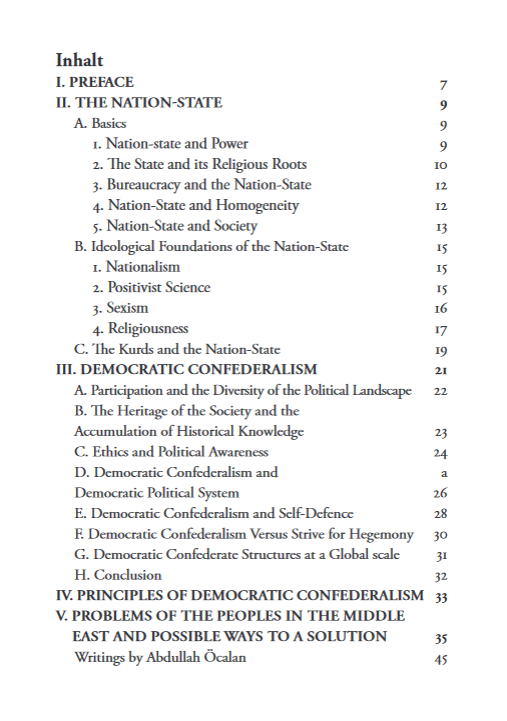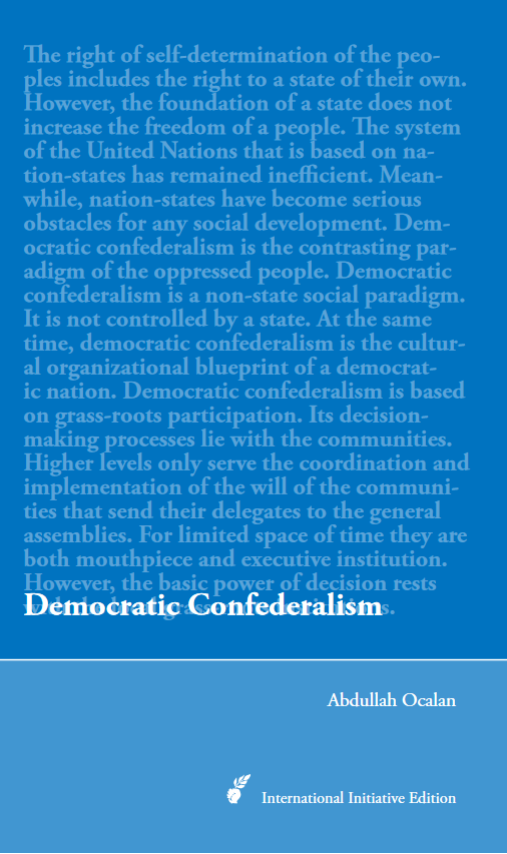Author(s)
Contents

“In contrast to a centralist and bureaucratic understanding of administration and exercise of power, confederalism poses a type of political self-administration where all groups of the society and all cultural identities can express themselves in local meetings, general conventions and councils. This understanding of democracy opens the political space to all strata of the society and allows for the formation of different and diverse political groups. In this way it also advances the political integration of the society as a whole.
Politics becomes a part of everyday life.
Without politics the crisis of the state cannot be solved since the crisis is fuelled by a lack of representation of the political society. Terms like federalism or self administration as they can be found in liberal democracies need to be conceived anew.
Essentially, they should not be conceived as hierarchical levels of the administration of the nation-state but rather as central tools of social expression and participation. This, in turn, will advance the politicization of the society. We do not need big theories here, what we need is the will to lend expression to the social needs by strengthening the autonomy of the social actors structurally and by creating the conditions for the organization of the society as a whole.The creation of an operational level where all kinds of social and political groups, religious communities, or intellectual tendencies can express themselves directly in all local decision-making processes can also be called participative democracy. The stronger the participation the more powerful is this kind of democracy.
While the nation-state is in contrast to democracy, and even denies it, democratic confederalism constitutes a continuous democratic process.”
Abdullah Öcalan
Leave a comment below with a valid email adress (it will not be published) to request this book.
